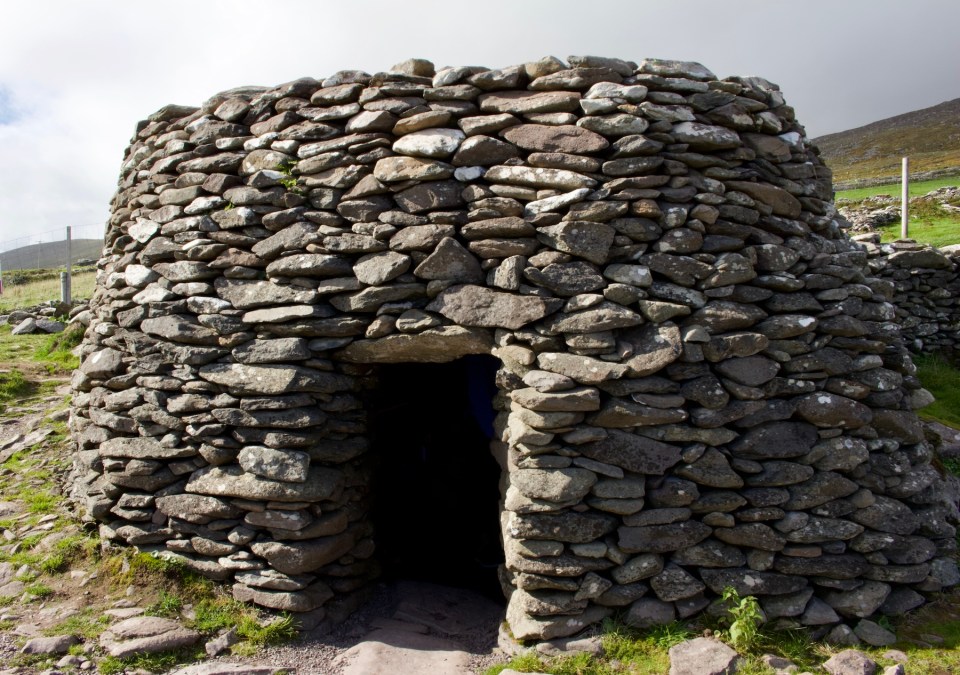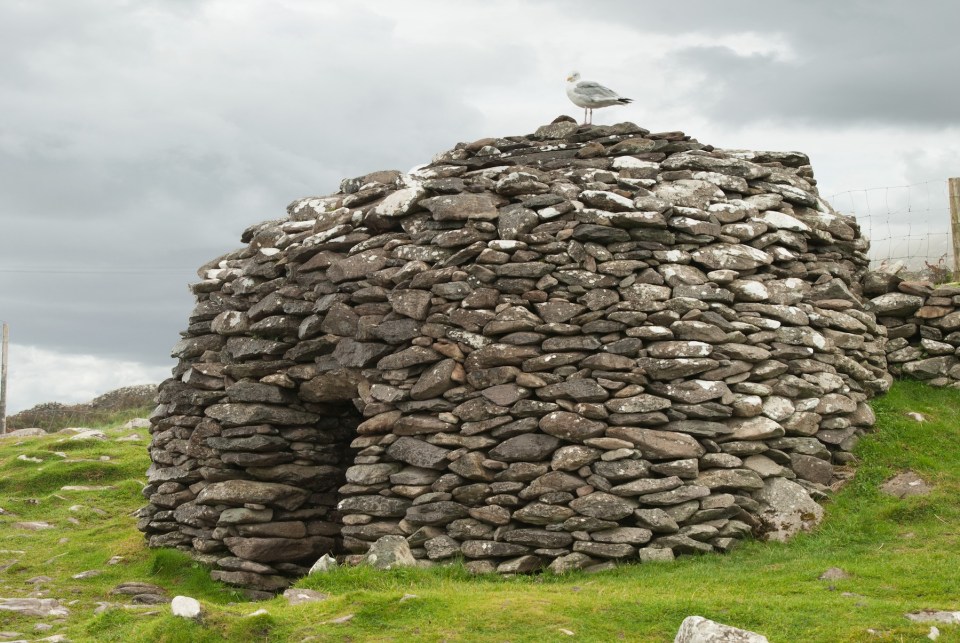County Kerry, Ireland is a windswept coastal region that is home to rolling hills, verdant fields, and mysterious dry stone beehive huts of unknown origin. The rounded beehive huts of Fahan—which are known as clochan—are some of the most well-preserved in all of Ireland. Visitors can explore the domed stone dwellings of the Dingle Peninsula that resemble cozy Neolithic hobbit holes.
An ancient stone beehive hut in scenic Ireland.
Photo by depositphotos.com
Fahan’s beehive huts were constructed using a method known as corbelling, which is still in use today. Corbelling involves placing stones in an overlapping pattern without any mortar. Some corbelled dwellings have thatched roofs. Modern corbelled structures generally house livestock or serve as storage rooms for food. Don’t be surprised if you see a sheep peeking out of the doorway of a beehive hut.
Some of County Kerry’s most impressive beehive huts are located on a rocky island called Skellig Michael. Historians believe that Skellig Michael was populated by Irish monks in the 6th century who embraced an austere lifestyle. Skellig Michael is visible from the shores of the Dingle Peninsula.
A blue sign that reads “Prehistoric Beehive Huts Fahan Group” directs visitors to approximately 40 stone huts—some are in ruins, others are fully intact. Historians believe that there used to be over 400 such structures. Some researchers speculate that 12th-century Irish natives built and lived in the beehive huts to escape from the invading Normans. Another theory is that 6th-century monks en route to Skellig Michael constructed the stone abodes. The beehive huts are difficult to accurately date because the use of corbelling has persisted for centuries throughout Ireland.

Close up view of a dry stone clochan (beehive hut) on the Dingle Peninsula in County Kerry, Ireland
Photo by depositphotos.com
In addition to viewing the beehive huts, visitors can scan the picturesque coast of the Dingle Peninsula for the remnants of the Ranga, a Spanish motor ship that was under an Icelandic charter when she lost power during a storm in 1983 and crashed into the cliffs at Dunmore Head. Most of the wreckage from the nearly 1,600-tonne ship has been cleared, but portions of the rusted bow are still visible.
Click Here to Read the Full Original Article at Unusual Places…

